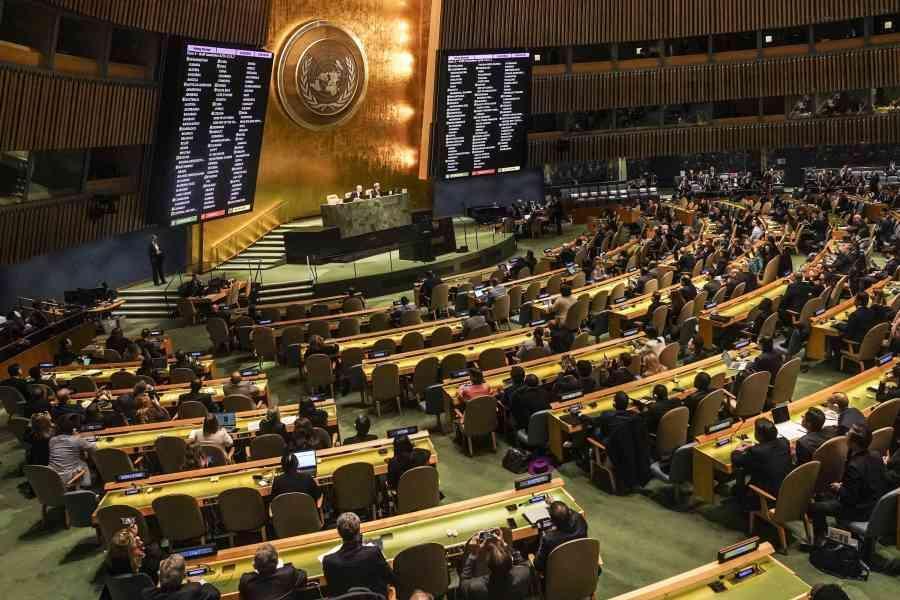
The United Nations General Assembly on July 25 has adopted a resolution that deplores all acts of violence targeting holy books as a violation of international law.
The 193-member General Assembly adopted the resolution drafted by Morocco by consensus.
The resolution came in the wake of several burning acts and desecrations of Qurans in European countries, including a recent high-profile Quran burning in front of a mosque in Sweden, allowed by the police, drawing international outrage.
An Iraqi Christian immigrant last month burned a Quran outside a Stockholm mosque during the major Muslim holiday of Eid al-Adha, triggering widespread condemnation in the Islamic world. A similar protest by a far-right activist was held outside Türkiye’s Embassy earlier this year, complicating Sweden’s efforts to convince Türkiye to let it join NATO.
The assembly strongly deplored ''all acts of violence against persons on the basis of their religion or belief, as well as any such acts directed against their religious symbols, holy books, homes, businesses, properties, schools, cultural centers or places of worship, as well as all attacks on and in religious places, sites and shrines in violation of international law.''
On July 12, the Geneva-based U.N. Human Rights Council also condemned recent attacks on the Quran despite Western countries’ votes against the resolution.
The resolution called for condemnation of attacks targeting the Quran and described them as ''acts of religious hatred.''
On July 25, another burning incident took place in front of the Turkish embassy in Copenhagen.
A group of far-right supporters burnt copies of the Quran in front of Türkiye and Egypt's embassies in Copenhagen, amid global outcry and repeated provocations in the past months.
The Turkish Foreign Ministry strongly condemned repeated attacks and criticized Danish authorities for failing to take action against provocations.
In the meantime, Sweden’s security situation has deteriorated after recent Quran burnings in the country and protests in the Muslim world, both of which have negatively impacted the Nordic nation's image, its domestic security service said yesterday.
The image of Sweden has changed “from a tolerant country to a country hostile to Islam and Muslims, where attacks on Muslims are sanctioned by the state and where Muslim children can be kidnapped by social services,” the agency said in a statement.
This risks fueling threats against Sweden “from individuals within the violent Islamist milieu,” the agency said, adding the current risk of terrorism in Sweden remains at an elevated level, at three on a five-point scale.